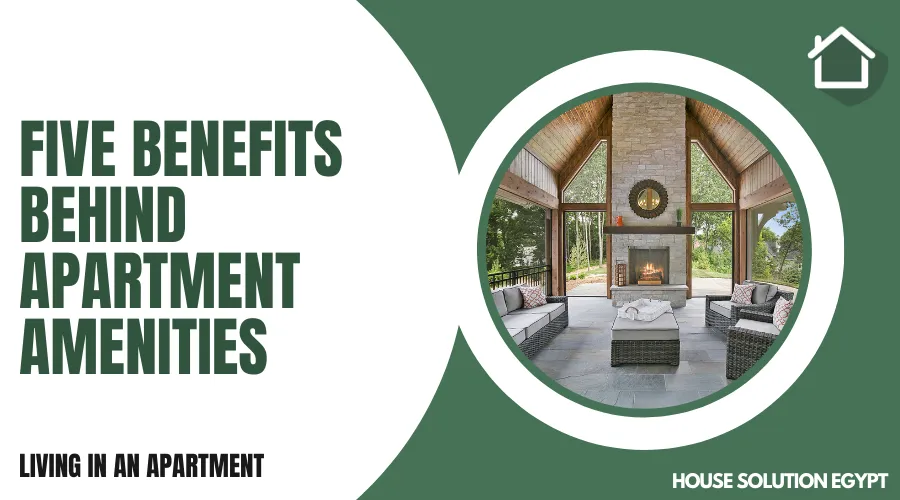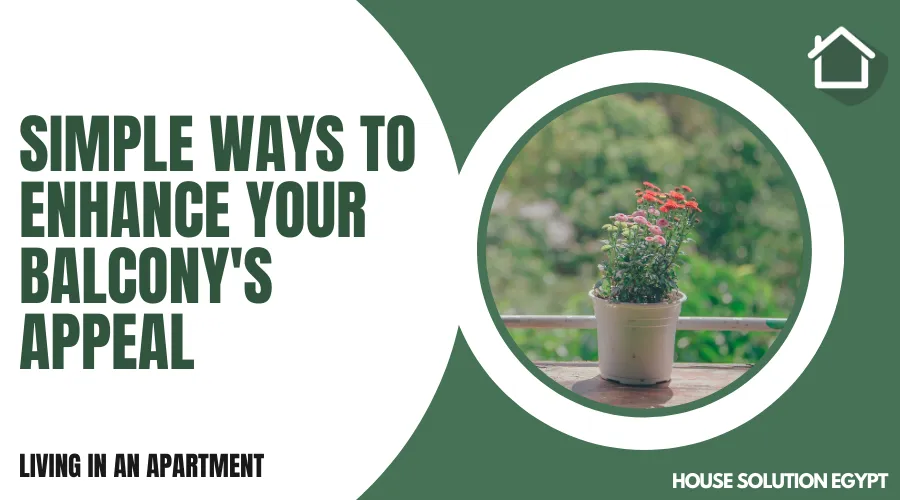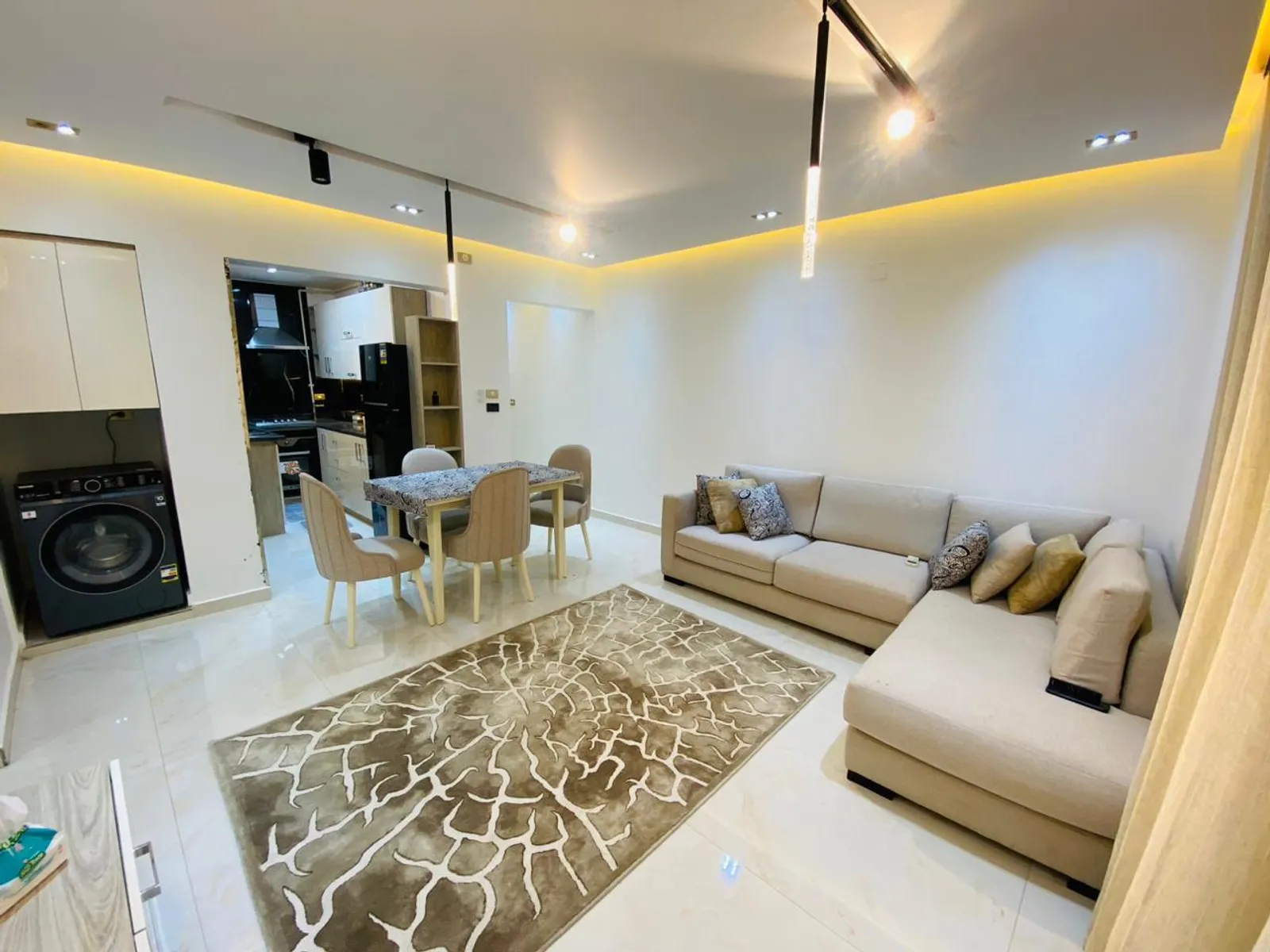HOW SECURE IS LIVING IN AN APARTMENT?
Living in an Apartment|4.6 MIN READ|Updated on: 24 December 2024|Written by: Marwa Samir
Living in an apartment can be a convenient and affordable option for many people, but one common concern is how secure it is. While apartments can vary in terms of safety measures, there are several factors that generally contribute to the overall security of these living spaces. One important aspect is the presence of locked entrances or key card access systems that prevent unauthorized individuals from entering the building. Many apartments also have security cameras or on-site personnel who monitor activity and respond to any potential threats.
Another consideration when it comes to apartment security is the quality of locks on individual units. High-quality deadbolts and reinforced doors can make it more difficult for intruders to break in, while flimsy locks may be easily bypassed. It's also important for residents to take basic safety precautions like locking their doors when leaving their unit and not opening them for strangers. Many apartments also offer additional features such as alarm systems or window locks that residents can use to further enhance their security.
While no living space can ever be completely free from risk, there are various measures that can be taken to make apartments safer places to live. By being aware of potential risks and taking advantage of available safety features, residents can enjoy peace of mind knowing that they're doing everything possible to stay protected in their homes.
Living in an Apartment
Living in an apartment can provide a sense of security to many individuals. With locked entrances and often 24/7 security, apartments can be considered a safe living option. However, it is important to note that security measures vary between buildings and locations. This means that not all apartments are equally secure.
Many modern apartment buildings have updated security features like key fob entry systems and surveillance cameras. These measures can deter potential intruders and provide residents with peace of mind knowing their building is being monitored. Additionally, the close proximity of neighbors in an apartment building can also act as a form of protection since there are more eyes on the property.
That being said, it’s important for renters to take their own precautions as well. Simple steps like locking doors and windows, avoiding sharing access codes or keys with non-residents and getting to know your neighbors can all contribute to a safer living environment in an apartment complex. Overall, while living in an apartment may not guarantee complete safety, the combination of building amenities and personal precautions can help create a secure living space for tenants.
Types of Security
1. Physical Security: One of the most common types of security people think about when it comes to living in an apartment is physical security. This includes locks on doors and windows, deadbolts, and peepholes. Some apartments may also have security cameras or a gated entrance with a guard on duty.
2. Cybersecurity: Another important aspect of security to consider while living in an apartment is cybersecurity. With the increasing reliance on technology, it’s essential to have measures in place to protect your personal information and devices from cyber attacks. This might include using strong passwords, keeping software up-to-date, and avoiding public Wi-Fi networks.
3. Environmental Security: Environmental security should not be overlooked when considering how secure it is to live in an apartment. This refers to measures taken to protect against natural disasters such as floods or earthquakes. Some apartments may have reinforced structures or emergency generators that can help residents weather unexpected events more easily.
There are many different types of security that contribute to our safety and well-being while living in an apartment. By being aware of these different categories and taking steps towards implementing them where possible, we can ensure a greater sense of safety for ourselves and our loved ones in our homes.
Advantages of Living in an Apartment
Living in an apartment has its advantages, and one of them is security. Apartments come with a variety of security measures that help keep you safe. For starters, most apartments have secure entryways where only residents and their guests can access the building. Additionally, many apartments have surveillance cameras placed throughout the complex to deter potential burglars.
Another advantage of living in an apartment is that your landlord or property management team will typically handle any necessary repairs or maintenance issues. This means you don't have to worry about fixing a leaky faucet or replacing a broken appliance yourself. Plus, if you're ever locked out of your apartment, there's usually someone on site who can help you get back in.
Living in an apartment often comes with access to amenities that would be difficult or costly to obtain on your own. For example, many apartments offer fitness centers, swimming pools, and recreational areas for residents to enjoy. These amenities can add value to your overall living experience while also promoting health and wellness.
Disadvantages of Living in an Apartment
When it comes to living in an apartment, security is one of the biggest concerns for many people. While some apartments have good security measures in place, such as gated entrances and surveillance cameras, there are still several disadvantages that come with living in an apartment from a safety perspective.
One major disadvantage is the lack of control over who enters the building. Unlike a private house where you can monitor who has access to your property, apartments usually have shared entrances and hallways that are accessible to anyone. This makes it easier for strangers or unwanted guests to enter the building unnoticed.
Additionally, due to close proximity between units, noise levels can be high which can lead to disturbances, especially at night. It can be difficult for residents to get a peaceful night's sleep if their neighbors are loud or if there is construction work being carried out nearby.
Another problem with apartment living is limited outdoor space. While some apartments may have balconies or common areas outside, they do not compare to having a private backyard or garden where you can relax and enjoy nature in peace without being disturbed by other tenants' activities.
Safety Precautions
Living in an apartment can be a great experience. However, one of the concerns that many people have is how safe they will be living there. Thankfully, there are several safety precautions you can take to ensure that you feel secure while living in your apartment.
Ensure all doors and windows have proper locks installed. This includes deadbolts on entry doors and sliding glass doors. Secondly, get to know your neighbors so you can watch out for each other and report any suspicious activity to the landlord or authorities if necessary. Thirdly, never leave valuables visible from outside your apartment, including laptops or jewelry.
Additionally, ensure smoke detectors and carbon monoxide detectors are in good working order at all times. Make sure electrical appliances like heaters or irons are turned off when not in use to prevent fire hazards. Lastly, if possible, choose an apartment building with secure access control systems such as key fobs or digital codes for entry to keep out unauthorized individuals.
By following these safety precautions while living in an apartment building, you can enjoy peace of mind knowing that you're doing everything possible to keep yourself safe and protected within your home.
Property Management/Landlord Responsibilities
As a landlord, it's your responsibility to provide a safe and secure environment for your tenants. This means ensuring that the property is well-maintained, free of hazards, and equipped with adequate security measures such as functional locks on doors and windows, smoke alarms, and fire extinguishers.
In addition, you need to ensure that all appliances provided in the apartment are in good working condition. Faulty gas lines or electrical outlets can pose serious risks to tenants' lives. Regular maintenance checks can help identify potential issues before they become major problems.
Landlords must ensure that their tenants are aware of any emergency procedures in place at the property. This includes providing information about evacuation routes in case of fire or other emergencies. By taking these steps, landlords can create a safe living environment for their tenants while also protecting themselves from liability issues.
Smart Home Technology
Smart home technology has revolutionized the way people live in apartments. With advanced security features, tenants can now feel safer and more secure within their homes than ever before. Smart locks and alarm systems are becoming increasingly popular, allowing tenants to control access to their homes through a smartphone or other smart devices. These locks work by using unique codes or biometric data, such as fingerprints or facial recognition, to unlock doors.
In addition to enhanced security features, smart home technology also allows for increased energy efficiency and convenience. With programmable thermostats and lighting systems, tenants can easily control their electricity usage and reduce their bills. They can even set up routines that automatically turn off lights when they leave the room or adjust the temperature when they leave for work.
Overall, smart home technology offers numerous benefits for apartment dwellers who want to elevate their living experience with added security measures that are convenient and easy-to-use while being energy efficient at the same time.
Conclusion
In conclusion, living in an apartment can be a secure and safe option for individuals who prioritize security. While there are risks associated with living in an apartment complex such as theft, burglary or break-ins, there are measures that can be taken to mitigate these risks. For instance, choosing an apartment complex that has a gated entrance with security personnel or installing additional locks on doors and windows can increase the level of security.
Moreover, it is important for individuals to take responsibility for their own safety by being vigilant and aware of their surroundings at all times. This includes not opening doors to strangers, reporting any suspicious activity to management or authorities immediately and investing in a home security system if necessary.
Overall, while apartments may not offer the same level of privacy as owning a house or property, they do provide a safe and secure option for those looking to live independently without compromising on safety.






